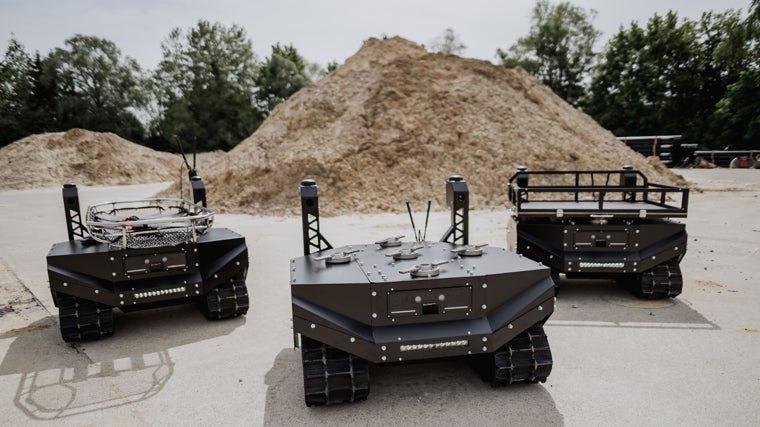For the first time in history, Russian soldiers surrendered to a robot-only offensive.

The war in Ukraine is taking an unprecedented Copernican turn, adapting to changing threats on the front lines through the use of advanced technology. For the first time in history, Russian combatants have been captured without the direct intervention of human infantry, in a completely robotic mission. Robots even escorted the prisoners to Ukrainian lines, without any soldiers having to set foot on the ground. This is an unprecedented milestone: modern warfare in which machines take prisoners of war.
On July 9, Ukraine's Third Separate Assault Brigade reported via Telegram that, in the Kharkiv region, it had successfully forced Russian soldiers to surrender to unmanned vehicles for the first time, using only drones and kamikaze ground platforms. "For the first time in history, Russian soldiers surrendered to an offensive carried out solely by robotic systems," the statement said.
The operation was carried out by the NC13 unit of the Deus Ex Machina robotics company, which deployed ground vehicles armed with explosives against fortified Russian positions. After destroying several bunkers, one of the ground robots approached a partially collapsed bunker, prompting Russian soldiers to voluntarily surrender to avoid an imminent explosion. "When the next robot approached a destroyed bunker, the enemy announced its surrender to avoid the explosion," the brigade detailed.
The surviving Russian soldiers were subsequently escorted to Ukrainian lines by multi-rotor drones, without direct human intervention, and taken prisoner in accordance with military protocol.
The Ukrainian brigade explained that Russian positions in that area had already successfully resisted two previous assaults by human units. However, the use of unmanned systems allowed them to take control of the fortifications and an adjacent forest line.
" Positions that had twice held out against adjacent units were recaptured by Triple's robots through precisely planned assault actions," the statement concluded.
 ARX Robotics Unmanned Ground Vehicle Models
capture
ARX Robotics Unmanned Ground Vehicle Models
capture
The LISA (Laboratory for Innovation in Asymmetric Security) think tank noted that while Ukraine had previously popularized the use of unmanned explosive boats in the Black Sea and swarms of low-cost FPV drones, which allow the pilot to view the world from the drone's perspective in real time, this operation marks a new level of sophistication in technified warfare.
"Robotic capture reinforces Ukraine's strategy of technology-based asymmetric warfare. It's a way to save lives and force the enemy to retreat without firing a single human bullet," the think tank states.
This breakthrough also opens an unprecedented legal loophole. The Geneva Convention does not cover the treatment of prisoners captured by autonomous systems, generating legal uncertainty and a new debate about the role of machines in armed conflict.
Defense experts from countries like the United States and Israel are analyzing these types of cases to accelerate the integration of autonomous systems into ground combat doctrines. However, this development raises urgent questions and opens the debate about warfare without humans.
ABC.es



